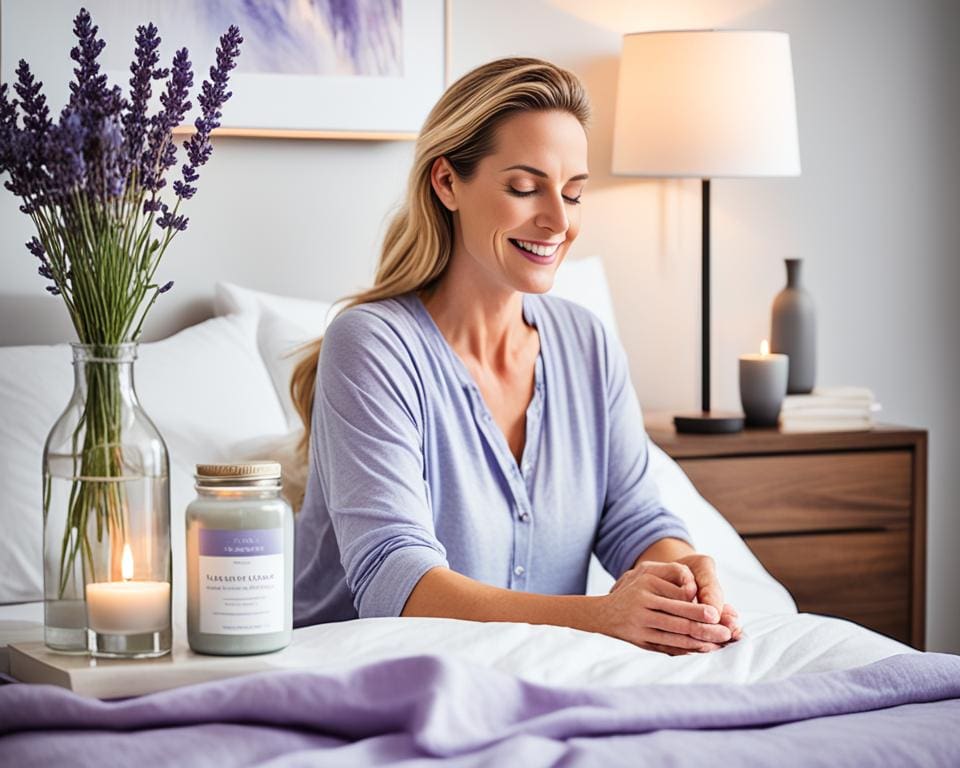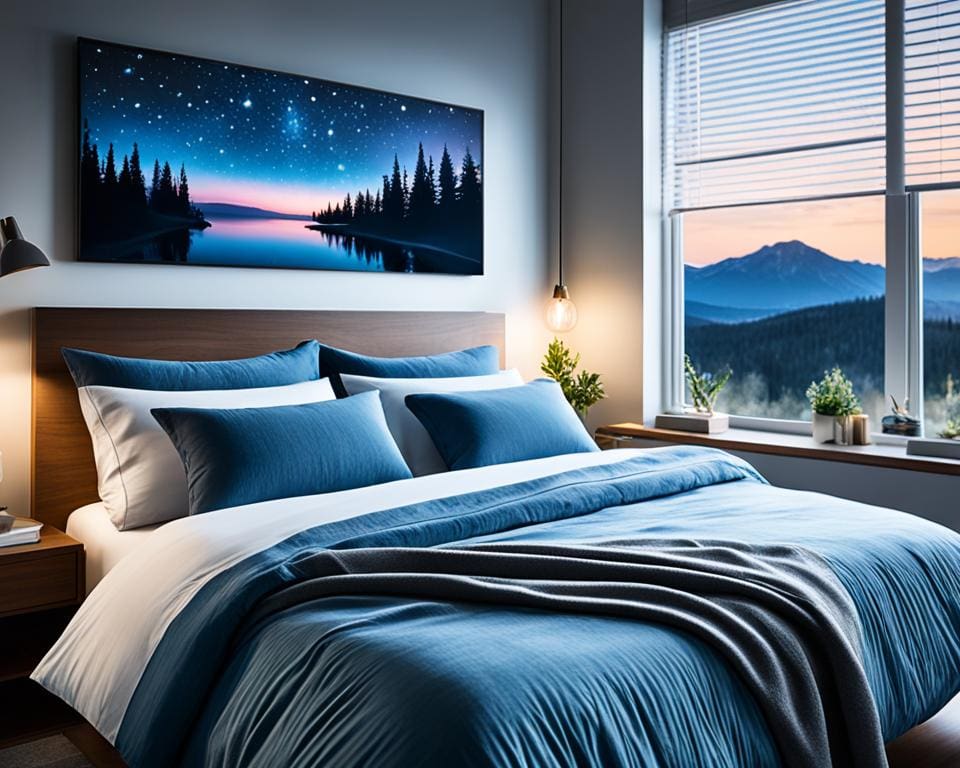Good sleep is vital for our health and well-being. Sleep hygiene includes our sleep environment and habits. By making simple changes, we can improve our sleep quality and enjoy more restful nights.
Our daily routines can greatly affect how well we sleep. Small tweaks can lead to big improvements in our sleep patterns. Better sleep habits can result in more refreshing and restorative rest.
Do you struggle with sleep deprivation or insomnia? Or maybe you just want to sleep better? Good sleep hygiene practices can help. These can make a real difference in your sleep quality.
A consistent bedtime routine is key to better sleep. Creating a sleep-friendly environment is also important. These tips for better sleep can unlock the power of quality rest.
Better sleep can boost your health and productivity. By following these tips, you can improve your sleep cycle and overall well-being.
The Importance of Sleep Hygiene
Good sleep hygiene is vital for physical and mental health. Poor habits can cause sleep disturbances, daytime sleepiness, and irregular sleep cycles. These issues can seriously affect our overall well-being.
Impact on Physical and Mental Health
Poor sleep quality and sleep deprivation can cause many health problems. They may reduce productivity and impair thinking skills. These issues also increase the risk of obesity, heart disease, and diabetes.
Lack of sleep can harm mental health too. It often contributes to depression and anxiety.
Consequences of Poor Sleep Hygiene
Bad sleep hygiene makes it hard to fall asleep. It causes frequent sleep disturbances and constant daytime sleepiness. These problems can hurt work, relationships, and life quality.
Addressing sleep deprivation and insomnia is crucial. It helps maintain optimal physical and mental health.

“Good sleep hygiene practices lead to increased productivity, improved relationships, fewer illnesses, and increased happiness, among other benefits.”
Sleep Hygiene: Tips for Better Sleep
Establishing a Consistent Sleep Schedule
A regular sleep schedule is key for your body’s internal clock. Set a fixed wake-up time, even on weekends. This helps your brain and body adjust to a steady rhythm.
Make gradual changes to your sleep schedule for best results. Short naps in the early afternoon can boost energy. But avoid long naps that might disrupt your nighttime sleep.
Good sleep hygiene offers lasting solutions to sleep issues. Unlike sleeping pills, it doesn’t lead to dependence.
Creating a Relaxing Bedtime Routine
A calming bedtime routine helps you unwind and fall asleep easier. Try activities like warm baths, gentle stretches, or soothing music. Avoid stimulating tasks, especially those involving electronic devices.
Blue light from screens can reduce melatonin production. This makes falling asleep harder. If you can’t sleep after 20 minutes, do a relaxing activity in low light.
Skip caffeine, nicotine, and alcohol 4-6 hours before bed. This can improve your sleep quality.
Optimizing Your Sleep Environment
Your sleep environment greatly affects sleep quality. Use a comfortable mattress and bedding. Keep your bedroom cool, around 65°F. Minimize light and noise for better sleep.
Use blackout curtains, earplugs, or white noise machines. These create a dark, quiet sleep space. Calming scents like lavender can promote relaxation.
Regular exercise helps sleep. But avoid intense workouts 4 hours before bedtime.
Daily Habits for Better Sleep
Your daily habits can greatly affect your sleep quality. A consistent bedtime routine is key, but healthy daytime practices also matter. These habits can boost your natural sleep-wake cycle and improve your rest.
Regular exercise is a powerful ally for better sleep. Moderate activities like walking or yoga can reduce stress and improve mood. Just avoid intense workouts close to bedtime, as they may make it harder to relax.
Monitoring caffeine intake is crucial for good sleep. Enjoy your morning coffee, but avoid caffeine in the afternoon and evening. It can disrupt your sleep patterns and make it difficult to fall asleep.
Be mindful of when you eat large meals. Heavy dinners close to bedtime can cause discomfort and poor sleep. Try to finish eating at least a few hours before you plan to sleep.









